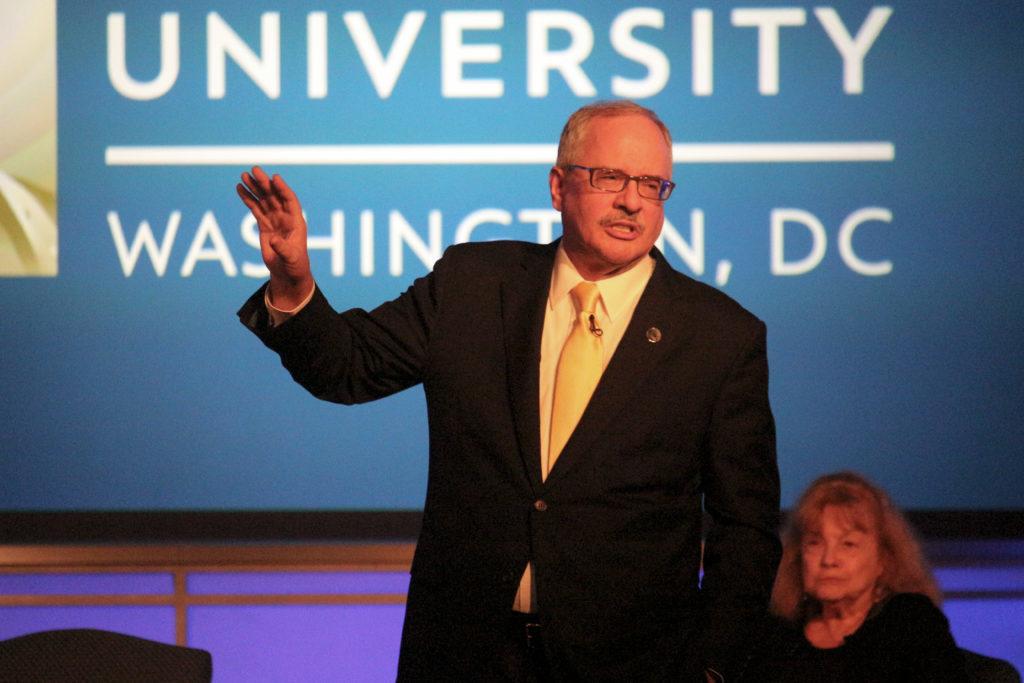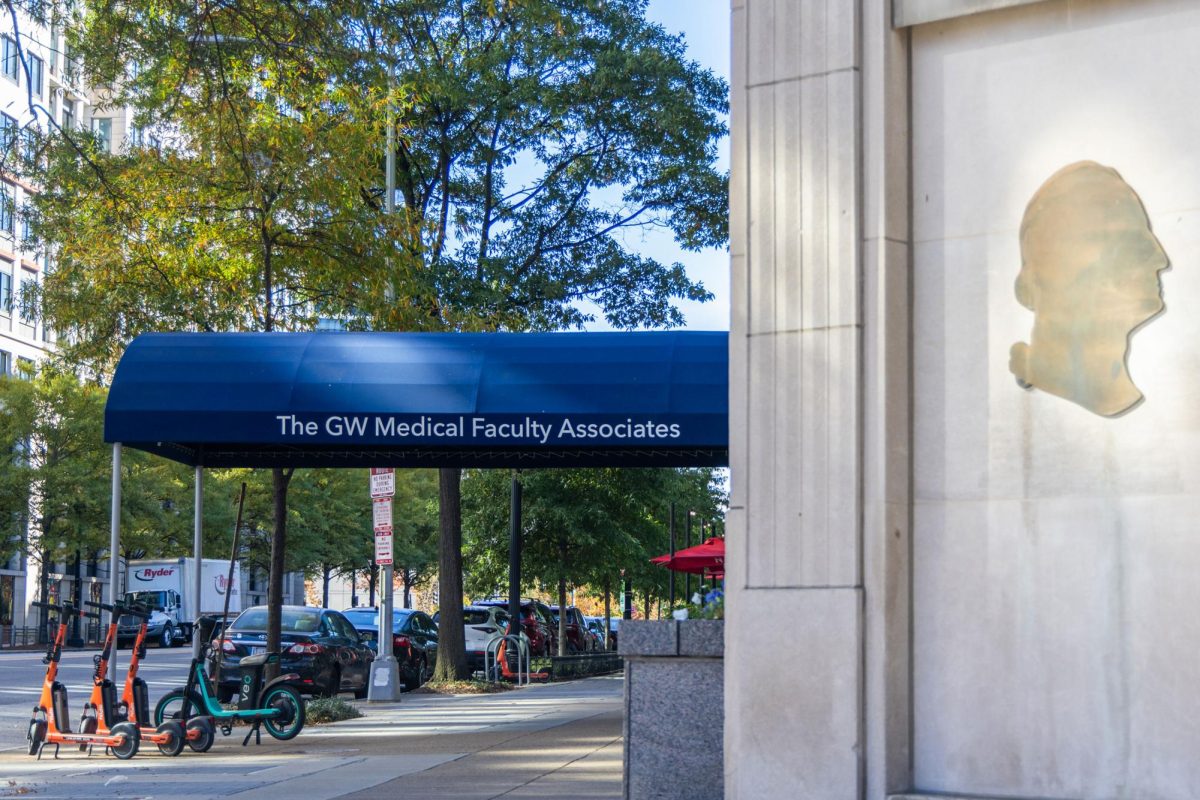Updated: Oct. 23, 2019 at 3:58 p.m.
Faculty overwhelmingly passed a petition Tuesday calling on University President Thomas LeBlanc to release the data underpinning his recent academic and culture changes.
Twenty-three faculty originally signed the measure to add five requests for information to the agenda of the Faculty Assembly – a body comprising all faculty members that meets annually. Faculty said the passage will preserve shared governance in the University’s top decision-making processes as the president aims to cut undergraduate enrollment by about 20 percent, boost the ratio of STEM majors to 30 percent and improve GW’s institutional culture.
“This is a request for information, it’s not a booby trap and there is no ill-intention behind this petition,” said Harald Griesshammer, an associate professor of physics and one of the petition’s signatories. “We want to see data, we want to see the logic and the rationale and consequences, both the intended and unintended consequences, as far as we can see at this point in time.”
The petition directs committees of the Faculty Senate, an elected representative body composed of faculty, to investigate issues related to the president’s changes and to publicly post its findings online by Dec. 20 and until at least Feb. 15. The petition’s final section urges Sylvia Marotta-Walters, the chair of the senate’s executive committee, to call a special meeting of the assembly in January to review the committees’ findings.
Griesshammer, who signed the petition, said after the committees file their reports, faculty will be able to make “informed” decisions on the proposals.
“The problem we face is that the administration actually has unique access to information that we do need to answer those questions,” he said.
LeBlanc did not take questions during the debate over the petition because a motion to hear his remarks before approving the petition failed to gain the two-thirds majority needed for passage. But his remarks at the assembly did not indicate a stance on the petition, largely defending the planned enrollment changes and outlining the strategic planning process instead.
He said the five committees he named to develop the strategic plan have received “whatever they want to know,” including the modeling top officials have used to make decisions.
“Let’s all have the conversation – I welcome the conversation,” LeBlanc said. “I don’t view this as antagonistic, I think we all want the same thing. We may not yet have access to the same data, but again, as I’ve said, I’m happy to share every model we run with the undergraduate committee.”
Provost Forrest Maltzman, who announced in April that he will step down from his position and take a sabbatical before returning to GW as a professor of political science, said everyone at the meeting had a similar goal of “enhancing” the student experience and GW’s reputation, as well as protecting the University’s “long-term future.”
Maltzman said the Faculty Senate fiscal planning and budgeting committee’s projections for funding the enrollment decrease “built in a fairly substantial cut” to the financial aid budget, which faculty members at the meeting said might decrease the “diversity or quality of students.” Maltzman commended faculty for raising the issue, adding that officials must consider the “financial stress” students experience every day.
“This sort of conversation is admirable,” he said. “These sorts of issues are absolutely critical for faculty to be discussing, to be holding the administration accountable and to raise.”
Erin Chapman, an associate professor of history, said she supported the petition because it will provide information to faculty and allow them to exercise their “right” and “responsibility” of shared governance.
“Ideally, it’s the faculty that make the University go,” she said. “It seems to me that in this process and putting together the strategic plan, decreasing the student population, increasing the STEM part of the student population and all that it would entail, we haven’t been consulted as a faculty.”
Chapman added that officials have moved too quickly on the decisions regarding GW’s academics for faculty to gather all the facts and assess the changes thoroughly.
“I think it’s important that we slow down this process and that we build into the process as the petition would have us do,” Chapman said.
No faculty member spoke in opposition to the petition at the meeting.
Walters, the Faculty Senate executive committee chair, said the petition complements some of the work she has already undertaken as chair, like receiving a commitment from Board of Trustees Chair Grace Speights to include faculty review in the strategic planning process.
“I actually think this petition that we have today is a really good example of shared governance,” she said. “It raises some very interesting points, and it actually is pointing out some things that I have already started doing.”
Lizzie Mintz contributed reporting.
This post was updated to reflect the following clarification:
An earlier version of this post stated that Provost Maltzman said GW’s financial projections built in a substantial cut to the financial aid budget. This post was updated to clarify that the projections are from the Faculty Senate’s fiscal planning and budgeting committee.











